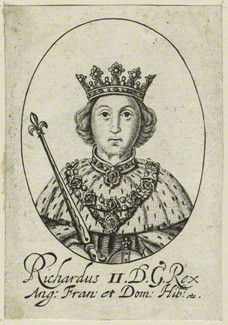What do you think?
Rate this book


497 pages, Paperback
First published August 14, 2014
 Richard II (6 January 1367 – February 1400), also known as Richard of Bordeaux, was King of England from 1377 until he was deposed on 30 September 1399.
Richard II (6 January 1367 – February 1400), also known as Richard of Bordeaux, was King of England from 1377 until he was deposed on 30 September 1399. Juicy beginning or what!?
Juicy beginning or what!?